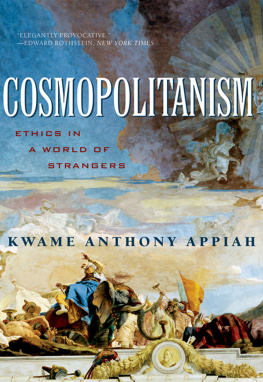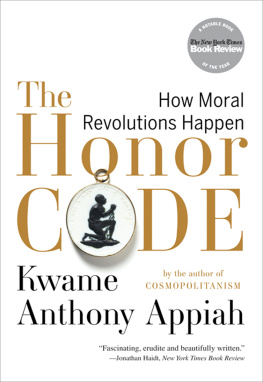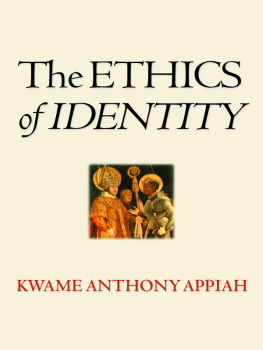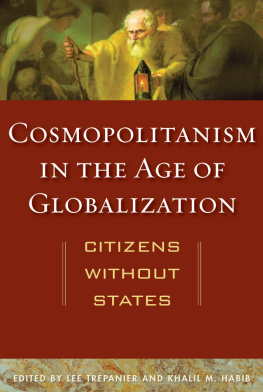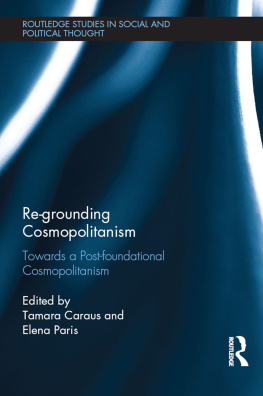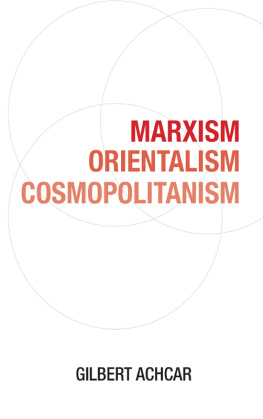W. W. NORTON & COMPANY
For information about permission to reproduce selections from this book, write to
Permissions, W. W. Norton & Company, Inc., 500 Fifth Avenue, New York, NY 10110
W. W. Norton & Company, Inc., 500 Fifth Avenue, New York, N.Y. 10110
www.wwnorton.com
W. W. Norton & Company Ltd., Castle House, 75/76 Wells Street, London W1T 3QT
INTRODUCTION
MAKING CONVERSATION
O ur ancestors have been human for a very long time. If a normal baby girl born forty thousand years ago were kidnapped by a time traveler and raised in a normal family in New York, she would be ready for college in eighteen years. She would learn English (along withwho knows?Spanish or Chinese), understand trigonometry, follow baseball and pop music; she would probably want a pierced tongue and a couple of tattoos. And she would be unrecognizably different from the brothers and sisters she left behind. For most of human history, we were born into small societies of a few score people, bands of hunters and gatherers, and would see, on a typical day, only people we had known most of our lives. Everything our long-ago ancestors ate or wore, every tool they used, every shrine at which they worshipped, was made within that group. Their knowledge came from their ancestors or from their own experiences. That is the world that shaped us, the world in which our nature was formed.
Now, if I walk down New Yorks Fifth Avenue on an ordinary day, I will have within sight more human beings than most of those prehistoric hunter-gatherers saw in a lifetime. Between then and now some of our forebears settled down and learned agriculture; created villages, towns, and, in the end, cities; discovered the power of writing. But it was a slow process. The population of classical Athens when Socrates died, at the end of the fifth century BC, could have lived in a few large skyscrapers. Alexander set off from Macedon to conquer the world three-quarters of a century later with an army of between thirty and forty thousand, which is far fewer people than commute into Des Moines every Monday morning. When, in the first century, the population of Rome reached a million, it was the first city of its size. To keep it fed, the Romans had had to build an empire that brought home grain from Africa. By then, they had already worked out how to live cheek by jowl in societies where most of those who spoke your language and shared your laws and grew the food on your table were people you would never know. It is, I think, little short of miraculous that brains shaped by our long history could have been turned to this new way of life.
Even once we started to build these larger societies, most people knew little about the ways of other tribes, and could affect just a few local lives. Only in the past couple of centuries, as every human community has gradually been drawn into a single web of trade and a global network of information, have we come to a point where each of us can realistically imagine contacting any other of our six billion conspecifics and sending that person something worth having: a radio, an antibiotic, a good idea. Unfortunately, we could also send, through negligence as easily as malice, things that will cause harm: a virus, an airborne pollutant, a bad idea. And the possibilities of good and of ill are multiplied beyond all measure when it comes to policies carried out by governments in our name. Together, we can ruin poor farmers by dumping our subsidized grain into their markets, cripple industries by punitive tariffs, deliver weapons that will kill thousands upon thousands. Together, we can raise standards of living by adopting new policies on trade and aid, prevent or treat diseases with vaccines and pharmaceuticals, take measures against global climate change, encourage resistance to tyranny and a concern for the worth of each human life.
And, of course, the worldwide web of informationradio, television, telephones, the Internetmeans not only that we can affect lives everywhere but that we can learn about life anywhere, too. Each person you know about and can affect is someone to whom you have responsibilities: to say this is just to affirm the very idea of morality. The challenge, then, is to take minds and hearts formed over the long millennia of living in local troops and equip them with ideas and institutions that will allow us to live together as the global tribe we have become.
Under what rubric to proceed? Not globalizationa term that once referred to a marketing strategy, and then came to designate a macroeconomic thesis, and now can seem to encompass everything, and nothing. Not multiculturalism, another shape shifter, which so often designates the disease it purports to cure. With some ambivalence, I have settled on cosmopolitanism. Its meaning is equally disputed, and celebrations of the cosmopolitan can suggest an unpleasant posture of superiority toward the putative provincial. You imagine a Comme des Garonsclad sophisticate with a platinum frequent-flyer card regarding, with kindly condescension, a ruddy-faced farmer in workmans overalls. And you wince.

